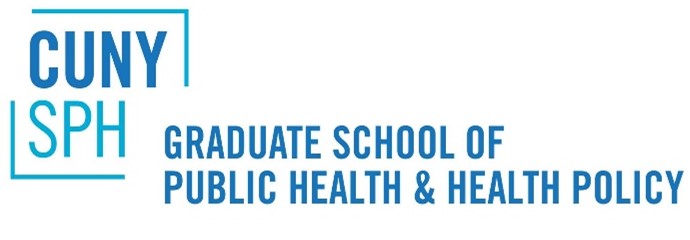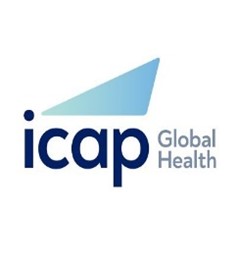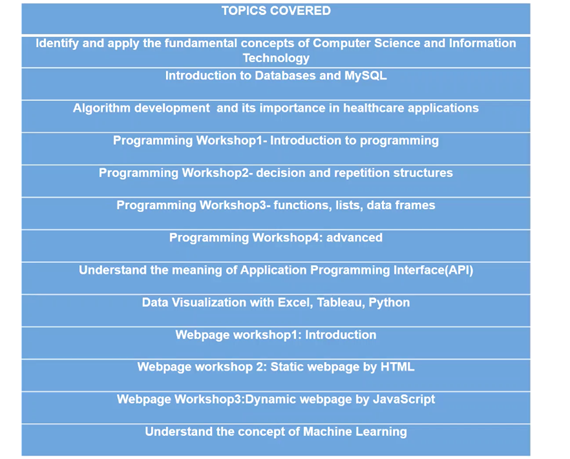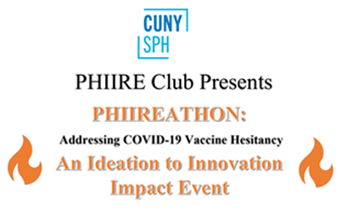
Population Health Informatics Program | January 2022

Ashish Joshi, Phd, MBBS, MPH
Senior Associate Dean
Student and Academic Affairs
Message
Welcome new and current students to the Master of Population Health Informatics program for the Spring 2022 semester! The faculty and I want to thank you all for joining us for another semester at CUNY SPH! We are here to continue supporting you on your academic and professional journey at CUNY SPH and beyond. For those of you who graduated in the Fall 2021 semester congratulations on your impressive achievement and good luck in your future endeavors. We look forward to celebrating you at the June 2022 Commencement Ceremony.
As this semester starts, I wish you luck in your classes and for those of you doing fieldwork look forward to helping you scale your ideas. Please be on the lookout for activities the PHIIRE Club hosts this semester to address public health challenges with an informatics lens. The PHIIREATHON: Addressing COVID-19 Vaccine Hesitancy Event was the first of many initiatives proposed to encourage you to think out-of-the-box to propose, conceptualize, and deliver small scale evidence-based interventions to those who need it most.
Table of Contents
- Save the Date
- Informatics News
- Research Highlight
- Student Spotlight Series
- Student Blog
- PHIIRE Club
Up-Coming PHI Talks for Which You Should Save the Date
January 14, 2022 | Event
The New Clinical Research Paradigm Post-COVID-19 and Beyond
January 27, 2022 | Webinar
PHI In The News
This study aims (1) to identify risk issues relating to the rapid development and redeployment of COVID-19 related e-health systems, in primary care, and in the health ecosystems interacting with it and (2) to suggest evidence-based evaluation directions under emergency response. Peer-review publications, reports, news sources, and websites that credibly identified the challenges relating digital health scaled for COVID-19 were scrutinized. Studies satisfying the selection criteria were charted based on their study design, primary care focus, and coverage of e-health areas of risk. Five identified digital health risk areas associated with the pandemic were governance, system design and coordination, information access, service provision, and user (professional and public) reception. We observed that rapid digital health responses may embed challenges in health system thinking, the long-term development of digital health ecosystems, and interoperability of health IT infrastructure, with concomitant weaknesses in existing evaluation theories. Read More
We aimed to investigate how distancing-enabling information and communications technology (ICT) infrastructure and medical ICT infrastructure, and related policies have affected the cumulative number of confirmed cases, fatality rate, and initial speed of transmission across different countries. We analyzed the determinants of COVID-19 transmission during the relatively early days of the pandemic by conducting regression analysis based on our data for country-level characteristics, including demographics, culture, ICT infrastructure, policies, economic status, and transmission of COVID-19. Our full sample analysis showed that implied telehealth policy, which refers to the lack of a specific telehealth-related policy but the presence of a general eHealth policy, was associated with lower fatality rates when controlled for cultural characteristics (P=.004). Read More
Highlights
To highlight the role of technology assessment in the management of the COVID-19 pandemic. Evaluation of digital health technologies for COVID-19 should be based on their technical maturity as well as the scale of implementation. For mature technologies like telehealth whose efficacy has been previously demonstrated, pragmatic, rapid evaluation using the complex systems paradigm which accounts for multiple socio-technical factors, might be more suitable to examine their effectiveness and emerging safety concerns in new settings. New technologies, particularly those intended for use on a large scale such as digital contract tracing, will require assessment of their usability as well as performance prior to deployment, after which evaluation should shift to using a complex systems paradigm to examine the value of the information provided. Read More
Student Recognitions
Ideation and Innovation

Congratulations to Rafael Escobar, MS Population Health Informatic Fall 2021 graduate, for starting his new position at ICAP at Columbia, currently involved in supporting HIV Coverage, Quality, and Impact Network (CQUIN) projects in four countries in Africa by building dashboards using Microsoft Power BI. Data provided by the countries generally regard Differentiated Service Delivery (DSD), and the dashboards provide insights into successes and gaps in care for HIV patients. CUNY SPH and the PHI program has given him great insights into the utilization of technology to support healthy outcomes for this population, while also providing me an opportunity to share my education to support more standardized data collection and reporting (dashboards). It is intended that implementing new standardized methods would facilitate the timely dissemination of information and provide capacity for under-resourced countries to build their dashboards tailored to their data sources and needs.
The work for the new position falls quite closely with lessons learned at CUNY SPH. Utilizing technology for capacity building and timely dissemination of important information has been the cornerstone for my PHI education. While the software may differ from what was learned during the PHI program, the main principles still apply and have made the transition more approachable due to familiarity.
Congratulations to Rafael Escobar!
Alumni Spotlight

Rafael Escobar is from Vermont, he graduated from Castleton University with a bachelor’s in health science and Minor in Chemistry. Once he moved to NYC around 2015, he began as a Pharmacy Technician with aspirations of continuing his education due to his desire for advancing professionally but aimed more towards public health in general. CUNY SPH allowed him to pursue a Master of Science in Population Health Informatics while working full time. The program made transitioning into the public health field possible through supportive professors and the ability to tailor his online learning schedule to his needs. CUNY SPH helped by developing key insights into aspects public health research and gaining knowledge into valuable PHI tools and approaches. He started his job search in his last semester and discovered the vast need for PHI specialist. A PHI perspective is so valuable that he accepted an offer at ICAP at Columbia University as a Health Information Specialist before graduation. His experience before CUNY SPH would not have been sufficient for the position, yet after presenting coursework that was completed from various classes in the program, he became a top contender for the position. CUNY SPH gave him the knowledge base to stand out above other candidates for the position.
Student Blog
On Monday, January 10, 2022, an information session was held for interested students to know about the fieldwork class EPID 700 required for the Population Health Informatics degree. This fieldwork class is different from the other fieldwork options as it provides weekly workshops that will help build skills that can be utilized for your project. Dr. Joshi recommends all students to have a meeting with him even if they have not registered for this class yet to discuss their interests and how they can incorporate it as their final project idea, or you could work at a fieldwork site to obtain your 180 hours. More information about the fieldwork sites can be obtained from the office of Experiential Learning: [email protected]. Some examples of the topics covered in this course are:

The meeting recording can be found here:
To schedule a meeting with Dr. Joshi please email him at [email protected] and cc [email protected] to discuss your project idea and fieldwork options.
Population Health Informatics Innovation, Research & Education
P.H.I.I.R.E Club

The PHIIRE Club, Dr. Joshi, the faculty advisor, and Rafaela Villacres, alumni, and Co-founder of PBC Labs hosted on Saturday, December 18, 2021, a post feedback session for the winner of the PHIIREATHON Event Navkaran Singh. The PHIIRE Club had the opportunity to invite members of PBC Labs to help evaluate Navkaran’s COVID-19 Vaccine Literacy App. PBC Labs has experience in UX and UI Design, mobile health and game development, and user research and survey management. The follow-up event was a success, we appreciate Navkaran Singh’s and PBC Labs participation and engagement.
Below you’ll find a recording of the feedback session for the PHIIREATHON event, where members of the PHIIRE Club and PBC Labs helped evaluate and provide feedback for Navkaran’s innovative idea to tackle COVID-19 vaccine hesitancy amongst our communities:
LOOKING FOR 2022 SPRING CABINET POSITIONS!!
Pending Election Date Saturday 11:30 am
We’re looking to fill positions for President, Vice President, Treasurer, and Secretary for the Spring-Fall 2022 academic year. This is your opportunity to be a part of the PHIIRE executive committee, a group of passionate, driven, and committed students who have a shared interest in bringing the informatics field to the forefront starting in an academic setting. We will be hosting an election at the end of the semester to nominate individuals for cabinet positions and recruit new members. We hope to see you there!
If you have any questions, please email [email protected], if you’re interested in learning about the PHIIRE Club and how you can get involved in the club’s activities.
Please Stay Tuned for Updates!
Join us
- To submit your contributions to this newsletter, contact [email protected]
- Submit content here!
- To join the PHIIRE Club, contact [email protected]
- Visit Our Website
- Join the PHIIRE Club



